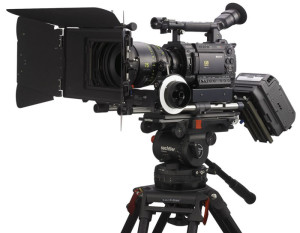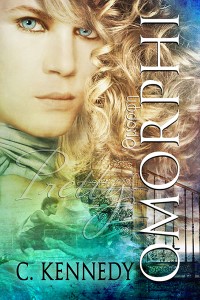 Last month I wrote about growing up in the film industry and mentioned that I have written screenplays on occasion. Yesterday, a good friend of mine mentioned that he saw the Vampire Academy film. Young Timmy loved the novels and was looking forward to seeing the film. Alas, he was disappointed, and asked: Why aren’t movies ever as good as the books?
Last month I wrote about growing up in the film industry and mentioned that I have written screenplays on occasion. Yesterday, a good friend of mine mentioned that he saw the Vampire Academy film. Young Timmy loved the novels and was looking forward to seeing the film. Alas, he was disappointed, and asked: Why aren’t movies ever as good as the books?
The short answer: Movies spoon-feed you visual candy, whereas books cause you use your imagination. Can it be that simple? Yes and no. Part of it has to do with how the brain processes information and part of it has to do with understanding that a film adaptation is a translation of a novel.
Let’s first consider how the brain processes information. It processes feelings first, thoughts second, and emotion third. When we watch films, we’re observers of prepackaged information and the first step, feeling, is skipped. We are not required to process feelings. Our visual cortexes are fed a series of images that generate thoughts that are then followed by emotion. When we read a book, we’re required to use our imagination. It takes over to create images in the mind’s eye and we feel what we read, have thoughts about it, and then we emote. Using your imagination is the primary reason reading is a far richer experience than watching a film. And your imagination is the best BFF you’ll ever have. When you read a book, you explore it, cultivate it, and own it.
Now let’s consider how a novel is adapted to film. A novel tells a story. Contrary to popular belief, at its core, a screenplay does not tell a story. It is a set of instructions to a director, cast, and crew on how to create images of a story. It’s a translation of sorts and we’re left without the benefit of the detail included in storytelling. In order to demonstrate the difference, I took a scene from Omorphi and adapted it to screenplay format. You be the judge.
First, the adaptation to screenplay format:
INT. CHRISTY’S CABIN – DAY
BANGING on the front door.
CHRISTY walks out of the BATHROOM.
The banging gets LOUDER.
Christy removes TOWEL from his HEAD and wraps it around his WAIST as he walks across the living room.
MICHAEL GESTURES Christy back and speaks into the PHONE.
MICHAEL
“I don’t know, Mom. Hang on.”
Michael GUIDES Christy to stand aside the DOOR.
MICHAEL (CONT’D)
(To the door)
“Who is it?”
LOUD BANGING continues.
MICHAEL (CONT’D)
(To Christy)
“You need a peephole.”
Michael walks to the WINDOW.
MICHAEL (CONT’D)
(Into phone)
“I don’t know, Mom. Just hang on.”
Michael cracks the PINE SHUTTERS.
MICHAEL’S POV:
We see part of a DELIVERYMAN’S UNIFORM through the window.
INT. CHRISTY’S CABIN – DAY
MICHAEL (CONT’D)
(To Christy)
“Are you expecting a delivery?”
Christy SHAKES his HEAD (rapidly).
MICHAEL (CONT’D)
(Into phone)
“Hang on, Mom. I’m going to answer the door.”
Michael places the his FOOT against the BOTTOM of the DOOR and OPENS it.
The WINDOW behind Christy EXPLODES.
Someone pushes the DOOR into Michael (hard). Michael trips backward. The phone flies from his hand.
JASON enters. Jason aims a GUN at Michael’s chest and FIRES.
Michael turns. BULLET to the arm.
FLAMES race across the FLOOR and up Christy’s LEG. Christy’s TOWEL ignites.
TAD enters and tackles Jason from behind, taking ALL THREE OF THEM to the FLOOR.
Michael struggles, his WOUNDED ARM useless.
MICHAEL (CONT’D)
“Get the gun!”
TWO SECURITY GUARDS join the fight. The GUN FIRES again.
SECURITY GUARD
“Keep him down! Keep him down!”
Christy SWATS at the FLAMES on his hip with a HAND.
CHRISTY
MEWLING NOISES
MICHAEL
“Christy!”
Michael fights his way out from beneath Jason and the guards.
Michael goes to Christy and rips the BURNING TOWEL from Christy’s waist.
FLAMES arc from Christy’s THIGH.
Michael removes TOWEL (#2) from his own WAIST and SMOTHERS FLAMES on Christy’s thigh.
FLAMES on the floor and wall grow large.
Michael lifts Christy and CARRIES him to KITCHEN AREA. Michael sets Christy on COUNTER. Michael turns SINK TAP on and SOAKS TOWEL (#2) in WATER. Michael wraps it around Christy’s BURNED HIP.
JASON
SHRIEKS (in the background)
MICHAEL
(Shouts) “Do you have a fire extinguisher? Christy?”
Christy does not respond. Michael cups Christy’s FACE with both HANDS.
MICHAEL (CONT’D)
“Christy?”
Michael KISSES Christy’s lips gently.
MICHAEL (CONT’D)
“Christy, are you in there? I need to know if you
have a fire extinguisher. Come on, come on, come
back to me.”
CHRISTY
SCREAMS
 As we see from the above, there is no emotion infused into the instructions. We don’t know how any of the characters feels. All we know from the above is that each action line represents a different shot. Each shot must be set up and the above scene would take a day at the very least to complete, more likely, two days. A very expensive scene for three minutes of film. It’s no surprise that we call these “money shots” and sometimes scenes such as these are altered to save money or are entirely omitted from the film.
As we see from the above, there is no emotion infused into the instructions. We don’t know how any of the characters feels. All we know from the above is that each action line represents a different shot. Each shot must be set up and the above scene would take a day at the very least to complete, more likely, two days. A very expensive scene for three minutes of film. It’s no surprise that we call these “money shots” and sometimes scenes such as these are altered to save money or are entirely omitted from the film.
Now, the same scene from the book:
Christy walked out of the bathroom and looked at Michael, equally surprised by the loud noise. The banging became insistent and hard enough to rattle the hardware. Christy took the towel from his head and wrapped it around his waist as he headed across the room. Michael stayed him with a hand on his arm.
“I don’t know, Mom. Hang on.”
Michael guided Christy to stand behind the door.
“Who is it?” Michael called.
The banging continued, insistent and loud.
“You need a peephole.” Michael moved to the front window. “I don’t know, Mom. Just hang on.” Michael cracked the pine shutters and peered out. All that he could see was part of a uniform. It looked like a deliveryman from one of those overnight courier services. “Are you expecting a delivery?”
Christy shook his head.
“Hang on, Mom. I’m going to answer the door.” Michael placed the ball of his foot against the base of the door and opened it slightly, and the window behind Christy exploded. The door slammed into Michael, and he tripped backward, the phone flying from his hand as Jason aimed a gun at his chest and fired.
Michael’s quick reflexes had him turning, avoiding a bullet to the chest but not to the arm.
Flames raced across the floor and up Christy’s leg and the towel around his waist ignited.
Tad tackled Jason from behind, taking them to the floor. Michael caught Jason’s gun hand in his own, but his wounded arm was useless, and his fingers were numb. “Get the gun!”
Two more security guards joined the fight, and the gun fired again. “Keep him down! Keep him down!” a guard shouted.
Christy batted at the flames on his hip and made desperate mewling noises.
“Christy!” Michael fought his way out from beneath Jason and the guards and ripped the burning towel from Christy’s waist. Flames continued to flick from his thigh, and Michael tore the towel from his own waist and smothered them. The flames on the floor and wall grew large, licking the air as if in an effort to reach Christy. Michael lifted him out of harm’s way and carried him to the kitchen counter. He quickly soaked the towel in cold water and wrapped it around Christy’s burned hip and thigh.
Jason shrieked and fought the guards like a wild animal, and Michael couldn’t believe three guys were having a hard time holding him down.
“Do you have a fire extinguisher? Christy?”
Michael’s shouted questions went unheard. Christy had gone to that faraway place again.
Michael cupped his face. “Christy?” He kissed him gently. “Christy, are you in there? I need to know if you have a fire extinguisher. Come on, come on, come back to me.”
Christy began to scream.
If you comment with your favorite scene from Omorphi below, I’ll do a brief screenplay adaptation for you and it will become ever clearer on why watching films can rarely compare to reading a book. See you next month on Monday, March 17th! And just for fun: 10 Book-to-Movie Adaptations that Should Have Never Been Made
 Available from: Harmony Ink Press
Available from: Harmony Ink Press
Όμορφη. Ómorphi. Greek. Meaning pretty
Pretty. adj. /pritē/ Pleasing by delicacy or grace
~*~
High school senior Michael Sattler leads a charmed life. He’s a star athlete, has great friends, and parents who love him just the way he is. What’s missing from his life is a boyfriend. That’s a problem because he’s out only to his parents and best friend. When Michael accidentally bumps into Christy Castle at school, his life changes in ways he never imagined. Christy is Michael’s dream guy: smart, pretty, and sexy. But nothing could have prepared Michael for what being Christy’s boyfriend would entail.
Christy needs to heal after years of abuse and knows he needs help to do it. After the death of his notorious father, he leaves his native Greece and settles in upstate New York. Alone, afraid, and left without a voice, Christy hides the myriad scars of his abuse. He desperately wants to be loved and when he meets Michael, he dares to hope that day has arrived. When one of Michael’s team-mates becomes an enemy and an abuser from Christy’s past seeks to return him to a life of slavery, only Michael and Christy’s combined strength and unwavering determination can save them from the violence that threatens to destroy their future together. Read an excerpt of Omorphi
 Available from: Harmony Ink Press
Available from: Harmony Ink Press
Caleb had one mission in life.
To keep his boyfriend safe.
They met at ten, kissed at twelve, and were madly in love by eighteen. Caleb Deering is the captain of the swim team and the hottest senior in school. He comes from a loving home with a kind father and a caring, but strict, mother who is battling breast cancer. Nico Caro is small and beautiful, and has a father who rules with an iron fist—literally. One morning Caleb forgets himself, and he pecks Nico on the lips at school. A teacher sees them and tattles to the Headmaster. The accidental outing at school might be the least of their problems, because the ball set in motion by the school’s calls to their parents could get Nico killed. In the face of that very real danger, Caleb knows he has only one mission in life: to keep Nico safe. Read an excerpt of Safe.
Check out Cody’s Blog here. Like Cody on Facebook, find Cody on Goodreads, on Twitter @CodyKAuthor, and read Cody’s free serial story, Fairy.
Other posts by Cody or about Cody’s books on Sid Love’s Blog:
Cody Kennedy on Writing and Attention Deficit Disorder
Guest Blogger, Cody Kennedy on Growing Up in Hollywood
Omorphi’s Blog Tour
Safe’s Blog Tour
Elizabetta’s Review of Omorphi


Interesting and much more detailed thoughts than my own reasoning’s lol.
For me Films never live up to books simply because in books there is no budget, nothing is impossible, and there is nobody cast that you didn’t cast yourself :p
One of my favorite scenes from Omorphi would have to be the climatic search for Christy aboard the plane. I can only imagine how flat that would appear in a screenplay format.
So true, Deeze! Anything is possible in a book! I’ll have to break that scene down for you! Thanks for dropping by! It’s always great to see you here!
Great post, Cody, and very spot on about how the brain processes reading versus motion pictures. Even when teaching special education high schoolers, for whom reading and using imagination was always a chore because they are by nature concrete thinkers, as we would be reading books in class (and we read of lot of classics, contrary to the prescribed curriculum) they’d always just say, “Can’t we watch the movie?” I’d always tell them we would watch it after finishing the book. So, after concluding the book, we would watch the movie version (usually the most recent adaptation) and every single time they proclaimed the book better. Even learning disabled kids valued the reading experience more.
Very insightful points about education, Michael. I agree with you one hundred percent! Thanks for dropping by and commenting!
I took a screen play class in high school and remember how hard it was to pull the emotion out of the scene. That stuff is then left to the actors and the producer. I loved the first Hunger Games movie but hated the book. The difference for me was that the book made Katness very evil and manipulative, and the movie made her naive and afraid. Very different interpretation. However, is it sad to say I’d like to see more books made into manga?
Vou are very correct re removing the emotion from screenplay writing. The mind-set is entirely different when writing a novel. Interesting re the Hunger Games movie. I’ve only read the books. LOL! No. More manga is always welcome! Thanks for dropping by and commenting! It’s great to see you here.
When you lay it side by side like that, it’s not hard to see why the movie can seldom live up to the book. And it would seem that the more familiar or “in tune” the actors are with the book, perhaps the better the movie adaptation. As an example from Omorphi, Chapter 72, “Time slowed again, his thoughts blended, colors blurred in his mind’s eye and, unlike before, he now knew it was possible to touch the sun.” How would you convey the depth of that emotion to the actors in the screenplay? Do you find that actors frequently go back and reread the parts of a book relevant to the next scene (in addition to the script) so that they can capture that emotion? Or do they rely upon the director to explain the emotion in the scene?
The other question I have relates to you as an author and a screenwriter. As an author, you experience the full range of emotions of your characters as you are writing their story. As a screenwriter, your job is to strip out the emotions and write a set of instructions. Is that inherently difficult for someone who is programmed first and foremost to be an author? I assume most people become authors because the emotional experience of their characters is a very satisfying aspect of the job. It just seems that screenwriting would pale in comparison to that experience. Would almost seem mundane by comparison.
Two very excellent questions, Mel. Thank you for asking them.
A good actor will take the time to read the underlying work to any screenplay. However, most rely on the director because their goal is to meet the director’s expectations. With respect to the particular emotion described in Chapter 72, I can only say how I would do it. I would film a close-up of Michael looking at Christy in slo-mo and would overlay it with/fade-in the SFX (special effects) imagery described in the book, then fade back to Michael only again. The scene would be very ethereal.
With respect to your second question, I view screenplay writing as much more of a “job.” I’m merely writing a set of instructions. That said, when writing a screenplay, whether from an underlying work or an original screenplay, there is nothing wrong with “suggesting” imagery in any given scene to express the emotion/unseen activity found in a book.
Hope this answers your terrific questions, Mel! Thanks for dropping by and commenting!
I’ve never seen anything like that before- to be able to compare the screenplay adaptation to the actual writing in the book was fascinating! I have never really thought about the profound differences between the two before, but I always wondered why the movie often left me feeling empty, in comparison to the experience of reading a book I loved. Great post, Cody.
Thank you, Mia! <3 There is a vast difference between screenplay and novel writing. I'm glad you enjoyed the post! Thanks for dropping by. It's always great to see you here!
Great post! I love to read – a hobby that my kids (or at least 2 out of 3 of them) don’t understand. I’ll laugh and cry while reading and they shake their heads and walk away. I always tell them that reading a book cannot compare to a movie. Even if a movie is fabulous it cannot touch reading the book – or at least most of the time. The book does allow you to feel and it allows you to have an scene in your mind and you grow with the characters and feel what they feel. I find that while an adaptation can be good it is rarely great – and as you mentioned specifically with Vampire Academy – just horrendous. The series of books was really enjoyable but the movie looks laughable – but I have not seen it so I cannot officially say. I read Harry Potter, I read Twilight, I read Gone with the Wind – and while all very good movies – they were better books. I go as far as to say I don’t like when models are on book covers because it changes the way I see character – doesn’t mean I won’t read it – just changes things. I remember as a kid reading the Scarlet Pimpernel – loved the book and my english teach made us watch the movie and it just killed it for me. I get so angry with casting agents sometimes LOL. Look at the fuss over 50 Shades. Ah well, there will always be different strokes for different folks and always those of us that will prefer to keep our movie viewing mostly separate from our books.
You raise excellent points, Betsy. It is amazing how suggesting the appearance of a character by using a model can substantially ruin it for a reader, I’m so glad you enjoyed the post! Thanks for dropping by and commenting! It’s great to see you here!
What a wonderful topic to write about Cody! I think you did a fabulous job demonstrating what you were talking about! It’s really cool to actually be able to see the difference and apply it to real life situations on why books are always better! Thank you Cody <3
Thank you, Leighton! It is an eye-opener to be able to see screenplay and literary text side by side. Im glad you enjoyed the post!
That’s a terrific comparison. The screenplay was terribly confusing without the visual stimulus. It just goes to show how important a decent director is to making the bare bones into something memorable.
I gave up being disappointed by movie adaptations a long time ago. It’s like comparing apples and oranges – same basic shape but two completely different things.
Thank you, Elin. It does go to show you not only how important the Director is, but also how important it is for cast to deliver on each character. Great analogy. Yes, comparing film to literary works is like comparing applies to oranges. I’m glad you enjoyed the post and thanks for dropping by and commenting!
[…] posts by Cody or about Cody’s books on Sid Love’s Blog: Film Adaptations: The Bane of Every Readers Existence Guest Blogger, Cody Kennedy on Growing Up in Hollywood Omorphi’s Blog Tour Safe’s Blog Tour […]